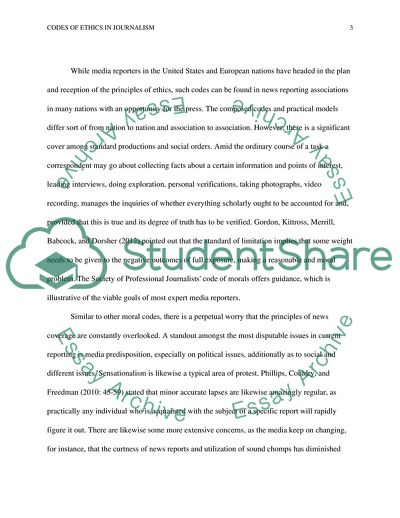Cite this document
(Codes of Ethics in Journalism Assignment Example | Topics and Well Written Essays - 3000 words, n.d.)
Codes of Ethics in Journalism Assignment Example | Topics and Well Written Essays - 3000 words. https://studentshare.org/journalism-communication/1841297-legal-ethical-issues-in-media-practice
Codes of Ethics in Journalism Assignment Example | Topics and Well Written Essays - 3000 words. https://studentshare.org/journalism-communication/1841297-legal-ethical-issues-in-media-practice
(Codes of Ethics in Journalism Assignment Example | Topics and Well Written Essays - 3000 Words)
Codes of Ethics in Journalism Assignment Example | Topics and Well Written Essays - 3000 Words. https://studentshare.org/journalism-communication/1841297-legal-ethical-issues-in-media-practice.
Codes of Ethics in Journalism Assignment Example | Topics and Well Written Essays - 3000 Words. https://studentshare.org/journalism-communication/1841297-legal-ethical-issues-in-media-practice.
“Codes of Ethics in Journalism Assignment Example | Topics and Well Written Essays - 3000 Words”. https://studentshare.org/journalism-communication/1841297-legal-ethical-issues-in-media-practice.


